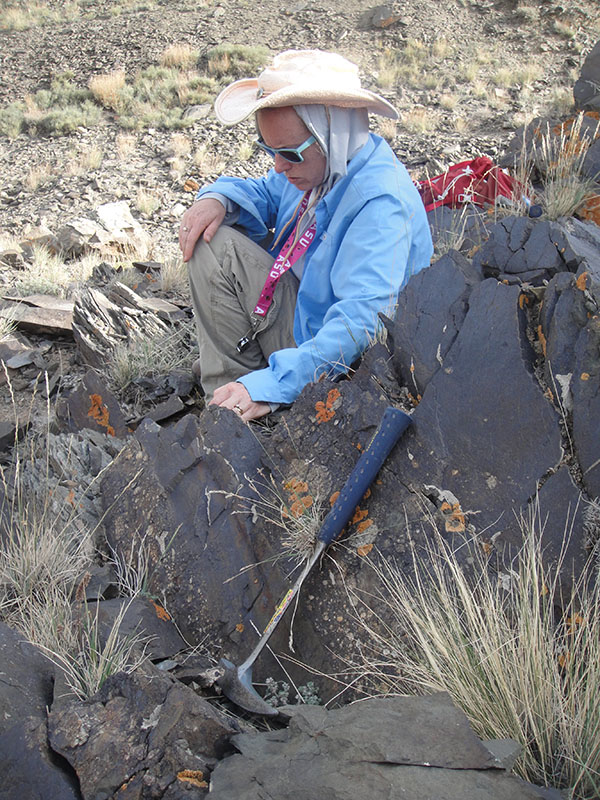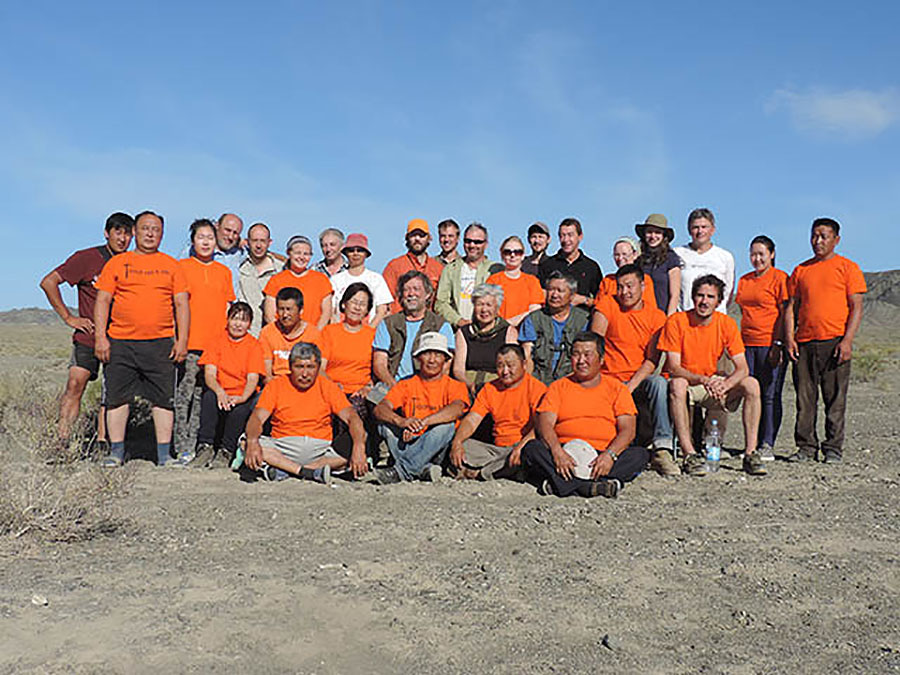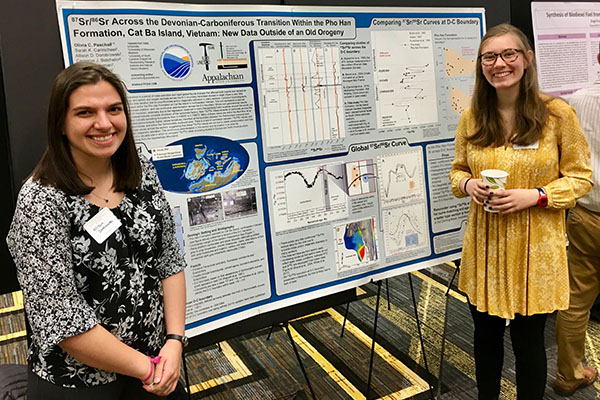BOONE, N.C. — The geological research of Appalachian State University’s DAGGER (Devonian Anoxia, Geochemistry, Geochronology and Extinction Research) team, which is led by Drs. Sarah Carmichael and Johnny Waters, will continue thanks to a $29,932 grant from the National Geographic Society (NGS). This funding will support their project titled “Looking for Mass Extinctions in All the ‘Wrong’ Places: The Late Devonian of Mongolia.”
Carmichael is an associate professor in Appalachian’s Department of Geological and Environmental Sciences, and Waters is professor emeritus in the department.
The DAGGER group is an interdisciplinary, international research team focused on the systematics of mass extinctions in the Late Devonian. The group is based at Appalachian, but consists of geochemists, sedimentologists, paleontologists and stratigraphers from around the globe.
“‘The present is the key to the past’ is a fundamental tenet of the geosciences,” Carmichael said, “wherein observations of modern phenomena are used to infer geologic processes in deep time.”
“We can likewise use the information preserved in the rock record to predict future events. In this project, we will use ocean sediments from the Late Devonian (375-350 million years ago) to predict the effects of future rapid climate change on marine animals and ocean geochemistry.”
According to Carmichael, the Late Devonian was a time of prolonged climate instability and catastrophic extinction that decimated marine ecosystems, including the virtual demise of coral reefs.
She said, “In order to use past biodiversity crises to predict future ones, our team will test our hypothesis that Late Devonian mass extinction pulses were climate driven and global in scope, and that survival depended on oceanic isolation. However, our current knowledge is limited by significant sampling bias, as nearly all previous studies are from semirestricted basins on continental shelves in the U.S. and Europe, which are not representative of global oceanic conditions at that time.”
To address this, Carmichael said the team will continue to study Late Devonian extinction events in western Mongolia, in sediments that formed on the flanks of isolated volcanic island chains and represent typical oceanic conditions in the Late Devonian.
“Understanding where and how marine animals can survive rapidly changing oceanic conditions and oxygen loss during past mass extinctions is a vital tool for predicting how marine ecosystems will respond to a predicted future biodiversity crisis,” she said.
The DAGGER team works primarily in the Central Asian Orogenic Belt of western China and western Mongolia, as well as in southeast Asia and in Europe, said Carmichael, “to determine the extent, scope and cause of Devonian ocean anoxia events, their potential for organic carbon sequestration (natural gas deposits) and the rebound from the mass extinctions associated with these events.”
Other members of the team include Dr. Sersmaa Gonchigdorj, a geologist at the Mongolian University of Science and Technology in Ulaanbaatar, Mongolia; Dr. Peter Königshof, section head in the Department of Paleontology Historical Geology at the Senckenberg Research Institute and Natural History Museum in Frankfurt, Germany; and many others.
About the Department of Geological and Environmental Sciences
Located in Western North Carolina, Appalachian State University provides the perfect setting to study geological and environmental sciences. The Department of Geological and Environmental Sciences provides students with a solid foundation on which to prepare for graduate school or build successful careers as scientists, consultants and secondary education teachers. The department offers six degree options in geology and two degree options in environmental science. Learn more at https://earth.appstate.edu.
About Appalachian State University
As a premier public institution, Appalachian State University prepares students to lead purposeful lives. App State is one of 17 campuses in the University of North Carolina System, with a national reputation for innovative teaching and opening access to a high-quality, cost-effective education. The university enrolls more than 21,000 students, has a low student-to-faculty ratio and offers more than 150 undergraduate and 80 graduate majors at its Boone and Hickory campuses and through App State Online. Learn more at https://www.appstate.edu.
What do you think?
Share your feedback on this story.






![How NCInnovation Is Rethinking Economic Development in North Carolina [faculty featured]](/_images/_posts/2026/02/rethinking-economic-development-600x400.jpg)








